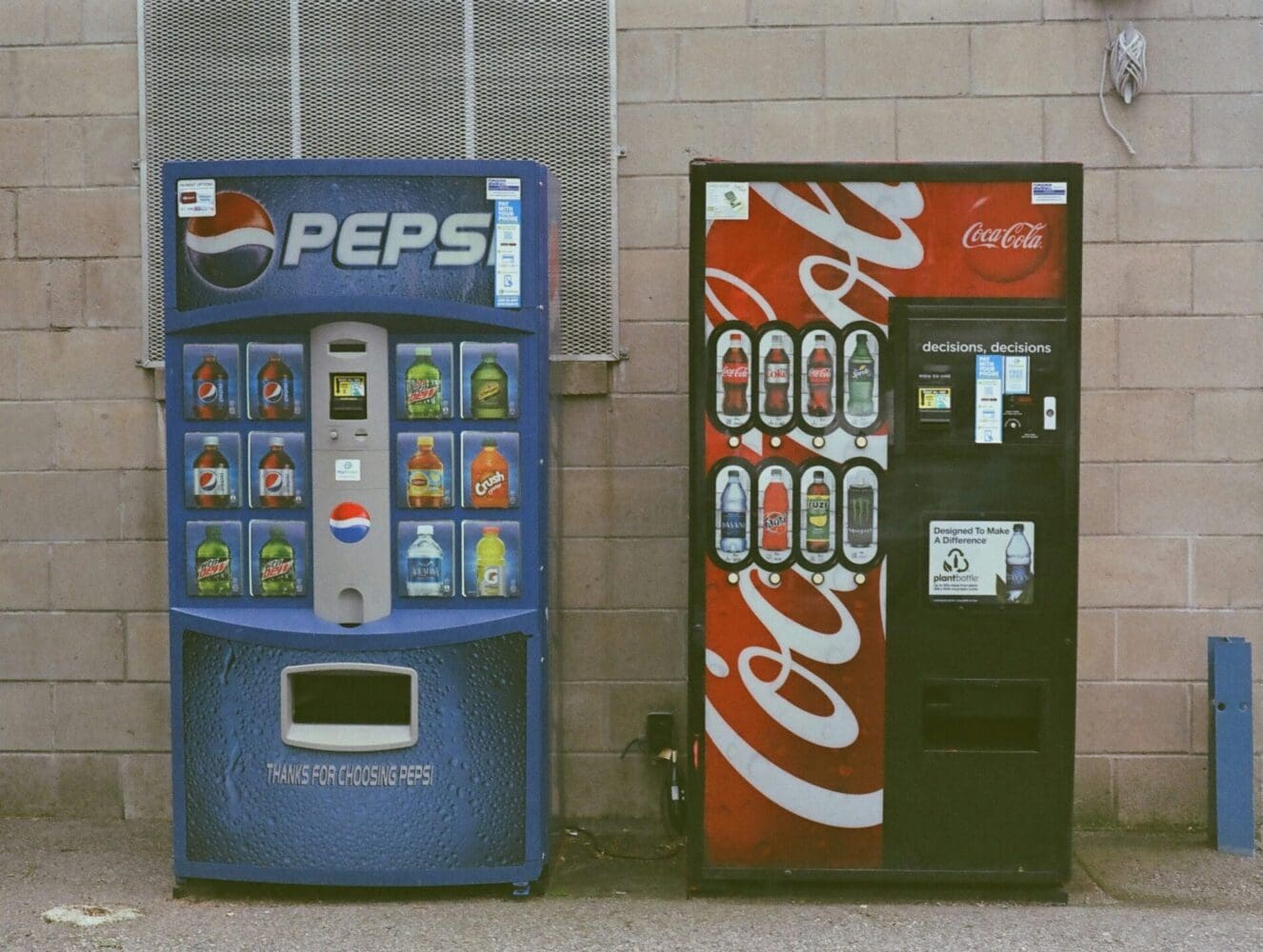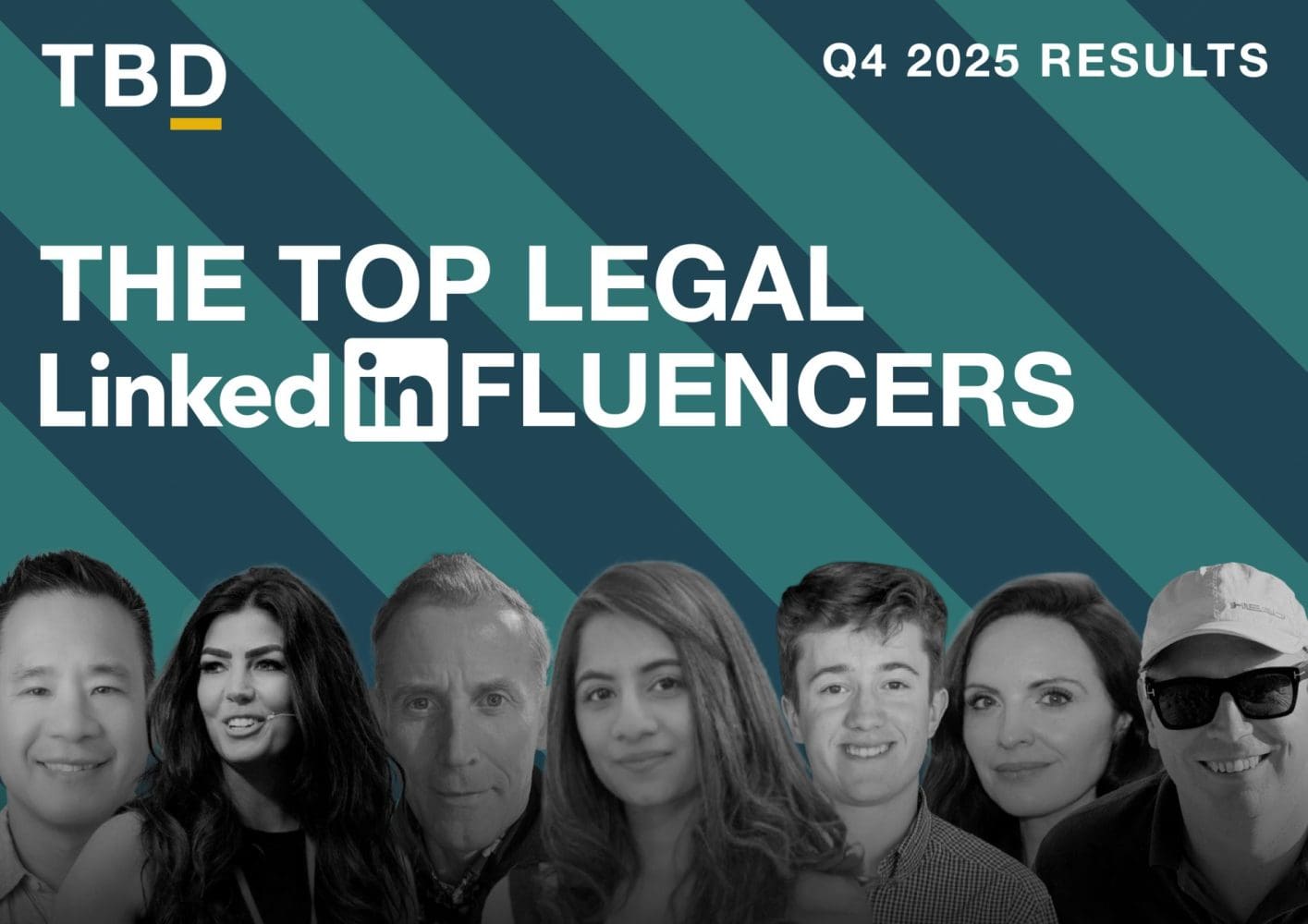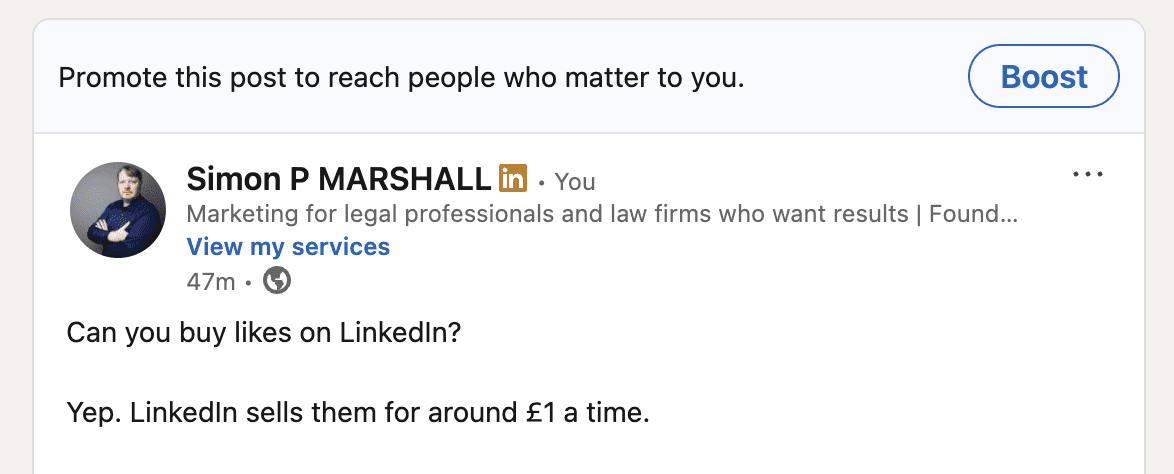Spoiler: yes.
But only if you stop misunderstanding what LinkedIn actually is.
“But does it win you work?”
If you’re asking whether LinkedIn “wins you work,” you’ve already told me three things:
- You’ve never been trained properly in how LinkedIn actually works.
- You probably haven’t been shown what good BD and marketing look like in a professional services context.
- You’re not yet seeing work come from LinkedIn.
When used well, LinkedIn doesn’t just generate work. It accelerates relationships. It shortens buying cycles. It positions you as the one people trust before they’ve even met you.
But here’s the truth: LinkedIn is not email. It’s not a newsletter. It’s not networking drinks, either. And it’s definitely not a CV site or an online billboard.
LinkedIn is a trust engine.
It sparks conversations. It grows your name when you’re not in the room. It creates the kind of visibility that referral-only firms can only dream of.
So, how does it actually win you work?
Not with a badge that says “this came from LinkedIn.” That’s not how it happens.
Here’s how it really works:
- You post something valuable. Someone reads it. Then shares it in a WhatsApp group or in a meeting. Suddenly your name is being mentioned by people you’ve never met.
- Someone you’ve never spoken to before DMs you because they’ve been lurking for months. Now they want to chat.
- Your old clients, university mates, or former colleagues see your stuff and think, “Yes. Still sharp. Still relevant.”
- Someone who saw a comment you left on a random post messages you about a personal matter. You have a call. Then an instruction.
It’s happening every day.
One friend tracked thousands of pounds of instructions directly back to LinkedIn during a period of freelancing. Every single client had either discovered them, been referred, or messaged them because of what they’d seen on the platform.
A law school contact now gets 85% of their new students via LinkedIn. That includes people who found them through reels, posts, polls and DMs. Most of those students book a call. Some join a free taster session. Nearly all go on to buy. It didn’t happen overnight, but it happens now, consistently. Eighty five percent!
Another family lawyer got a new client after commenting on someone’s post featuring a dinosaur mask. That person DMed her weeks later saying she’d saved her name. Why? Because she liked her attitude and her energy.
An employment partner was contacted out of the blue by the UK head of legal at a major global company. No likes. No comments. No interaction until the message landed. They pitched. They won. They displaced a very well-known firm. That client is now one of their biggest.
It may seem like magic but it’s not magic. It’s visibility. But only if you’re there.
Still not sure? Try this instead.
Ask yourself: if a potential client looked at your profile today, what would they see?
- Someone who hasn’t posted in months?
- A string of reshared corporate news with no commentary?
- Or a credible voice who gets their world?
In 2025, your LinkedIn presence is your professional reputation. Sitting it out isn’t neutral. It’s invisible.
So what should lawyers do differently?
Stop asking if LinkedIn “wins you work” as if it’s a vending machine.
Start asking: “How do I become the person people think of when that issue arises?”
Here’s how:
- Share what you know, but not everything.
- Demonstrate that you understand their pain points and that other clients have attested to the fact that you’ve solved them.
- Write like you speak and speak like a human.
- Show up regularly, not once every other quarter.
- Show up for others, not just for yourself.
- Tell stories that show your value, not just your ego.
- Comment and reply like a normal person, not a bot.
One lawyer said they’d opened files ranging from one-off advice through to cases worth £100 million. Some came from coffee catch-ups that started after a post. Others from old clients who spotted a new job announcement. The point? LinkedIn made it easy to be found. And even easier to stay relevant.
Bottom line?
Yes. LinkedIn does win work.
But only for the people who stop treating it like an obligation—and start treating it like the opportunity it actually is.
If you haven’t been shown how yet, that’s not on you. But staying silent?
That one is.
Did I mention that we do LinkedIn training and run a BD club for lawyers?






